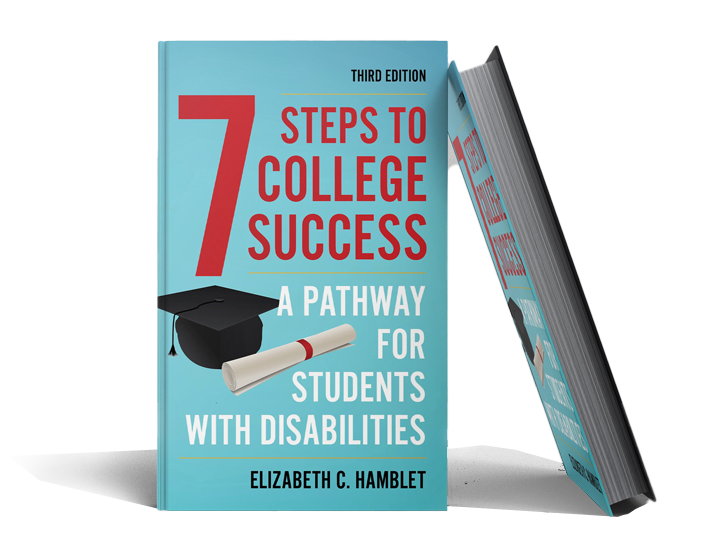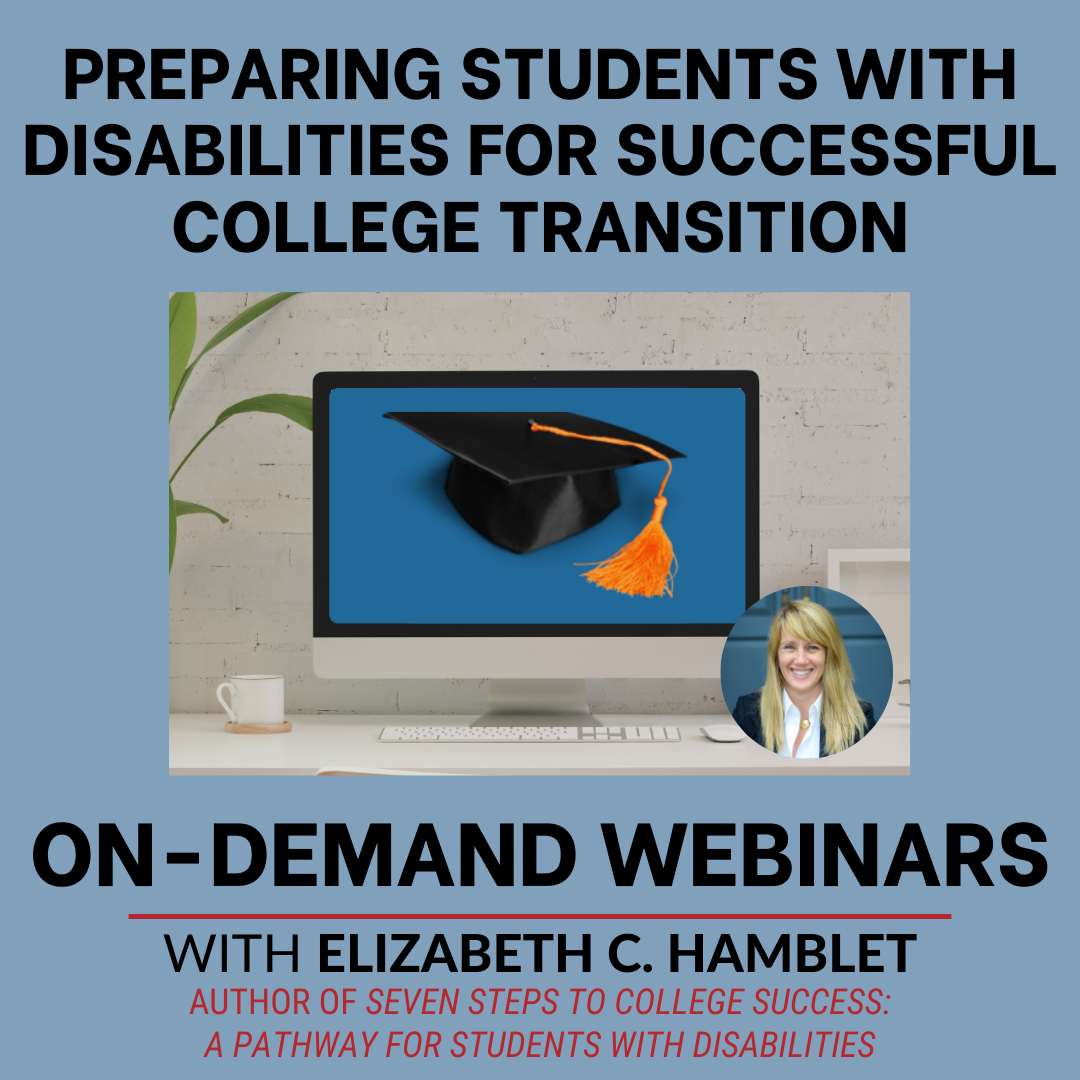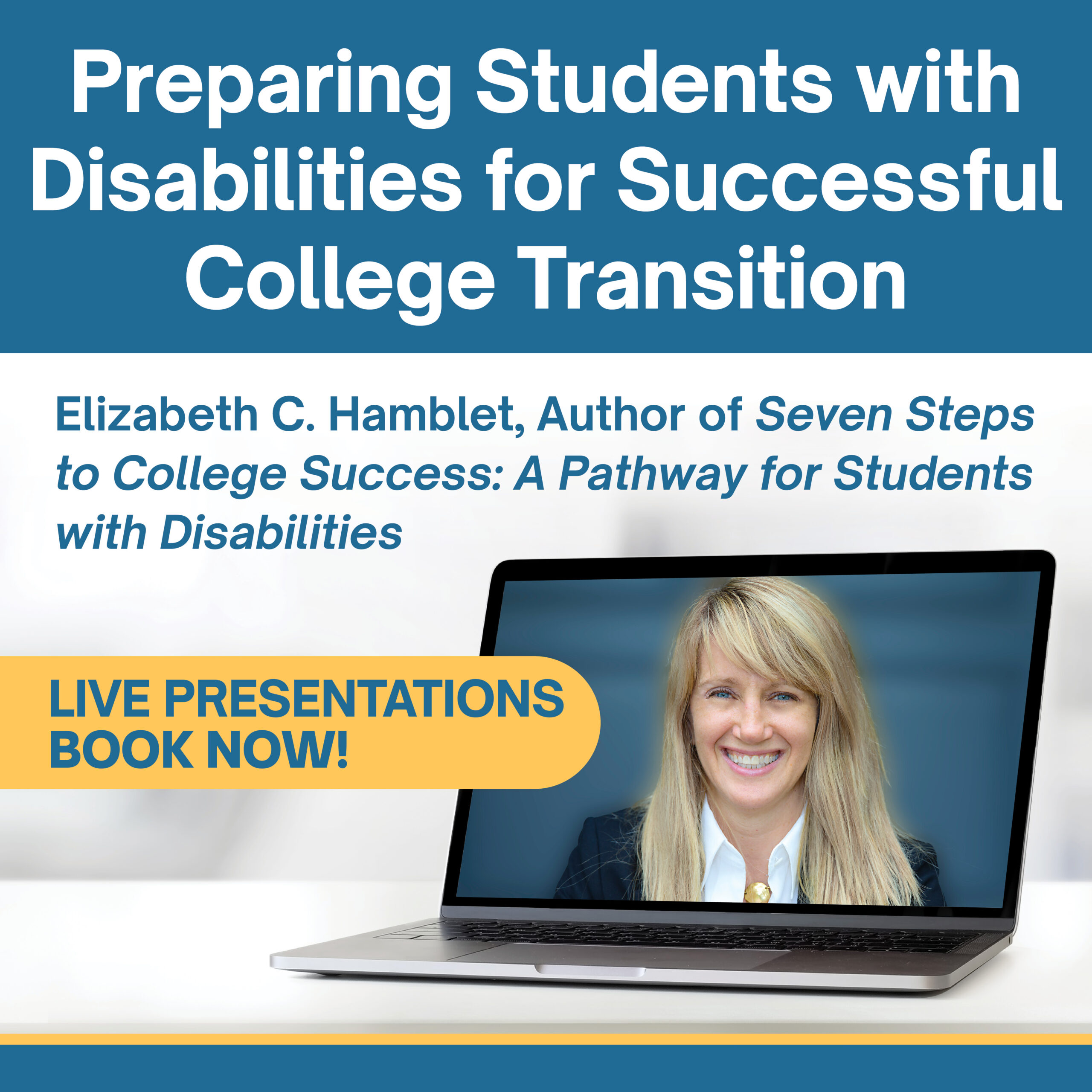Introduction
Some parents think that paying for a private evaluation will ensure that students will receive more or better accommodations at college than those obtained by submitting a report from a school district. This isn’t necessarily true. (At some colleges, students won’t even need testing, or may be able to use older testing. Read about more documentation myths.)
I have seen parents advise each other that in order to get their student the best chance at getting accommodations in college and/or the most numerous/most supportive accommodations there, they should get their student privately tested. After more than 20 years of reading these documents, I continue to disagree with this idea. And in most cases (despite what you may have heard), colleges don’t require a neuropsychological evaluation. Read this post or watch this video to learn how to find colleges’ requirements.
Going private doesn’t guarantee a quality report or more/better accommodations at college
I read 80-100 reports a year for my job in a university disability services office, many of them from private testing. Many of these reports provide only the most minimal history, few details, and no meaningful analysis of the results. Some contain numerous recommendations for accommodations, but some of these aren’t available at the college level (which, in my opinion, these professionals should know), and some aren’t supported by the testing.
Remember – colleges may consider what examiners recommend in their reports, but they are not obligated to provide those accommodations simply because they have been recommended, and most won’t if they don’t see a link between the student’s disability and the recommended accommodation.
For most students with learning disabilities, the testing provided by the school system will likely be accepted as adequate documentation (disability paperwork) by colleges, so getting tested privately will probably be unnecessary in order for students to be found eligible for accommodations.
Special considerations for students with ADHD
Students with ADHD will find that requirements vary widely from college to college. Some schools may require testing students have never had, though this is not true of the majority of colleges. Learn more about this.
Private testing probably isn’t necessary
Before you spend money on unnecessary testing, make sure your student actually needs it. Check the documentation requirements for the college your student will attend. If the documentation you currently have meets the requirements, you may want to reconsider spending money on private testing. (Again, most colleges don’t require a neuropsychological evaluation, despite what others have told you.)
Don’t arrange for your student to be tested privately on the assumption that a private report will get your students more or “better” accommodations than a school district’s evaluation. A private report might be useful in obtaining additional accommodations only if your student is being tested to probe areas not assessed in a standard school district evaluation, or if the testing that will be privately administered goes beyond the standard batteries by using additional tests to probe areas of concern. Remember, though, that additional testing may not demonstrate that the student has a disability.
Also -“better” accommodations may mean different things to different people. And again – colleges don’t have to provide certain accommodations simply because they were recommended, and some won’t be available at the college level.
Elements to look for in a good private report*
Many psychologists and neuropsychologists (we’ll call them examiners) who do testing have their own template that they use; this is typical (make sure the report includes the professional’s license number, contact information, and signature). But what separates a basic report from a detailed one worthy of the expense is the amount of detail that the evaluator includes on top of this basic framework.
A good private testing report will contain:
-
The reason for referral.
The examiner should indicate why the family brought the student in for testing. Is it a struggle to complete homework? Does the student not finish tests unless given additional time? Is this a longstanding problem or a new one? (Note that colleges may wonder why there’s no report of a student struggling to complete tests until junior year, when ACT or SAT test time comes, and only one single subtest score is low. Examiners should include details from their interviews with parents and from school records and teacher reports.)
-
A thorough history. This part of the narrative should include information about:
- early development (did the student walk, talk, etc., within a normal developmental range?)
- acquisition of academic skills (when did the student learn to read, write, do simple calculations?)
- any history of speech and language or occupational therapy, tutoring, or after-school help provided by teachers, including how long this support was provided, and how old the student was in this period
- family history – have any members of the family been diagnosed with or are suspected of having a disability? There should be a discussion of the family’s situation, too (did the family recently suffer a loss? how many siblings? any other family stressors?)
- third party information (meaning information that doesn’t come just from family members), such as a review of the student’s report cards and teacher comments, scores on standardized tests, etc. This will (or won’t) show that the behaviors the parent or student reports are noticed by others, which is important to the examiner’s understanding of the full picture.
-
A description of the student’s performance during testing.
Good examiners will describe the student’s demeanor throughout the testing. (Did they make consistent eye contact during the interview? Did they cry when certain tests were introduced?) The report will cover how the student worked on the tasks. (Did they rush through? Did they take five minutes to work on each question?) Sometimes an examiner will ask a student to explain how they arrived at an answer or give the student a chance to try a problem again after it has been marked wrong to see whether the student just wasn’t paying attention, needed a little more time, didn’t know how to do the problem, or just didn’t know the answer.
-
Scores for every subtest given, presented in standard or scaled scores and percentile ranks.
Examiners should not just provide the index or cluster scores from a testing battery but also the individual scores for the tasks making up those clusters. For instance, an examiner should give not only the student’s Verbal Comprehension Index score for the Wechsler Adult Intelligence Scale–Fourth Edition, or WAIS–IV, but should also provide the student’s scores on the Vocabulary, Similarities, and Information tests (and any supplemental measures administered). Some colleges will not accept results where standard/scaled scores and percentile rank scores aren’t included. (It’s usually fine if grade and age equivalent scores are included – they don’t have to be taken out – but reports that contain only these might not be accepted.)
-
Additional testing to probe areas of concern.
I sometimes see reports where a student has reported a history of trouble in a particular skill area but the scores in the testing don’t point to any weakness because the tasks administered aren’t sensitive enough to get at the root of the problem for that student. A good examiner will administer additional tests (without additional charge) to keep probing. For instance, a student’s skills might not look weak when reading words aloud on the Woodcock-Johnson Letter-Word Identification task (which is part of the Woodcock-Johnson Tests of Achievement battery), but they might when the student reads words under a time limit on the Test of Word Reading Efficiency-Second Edition.
-
Behavioral/social-emotional scales.
At times, students experience challenges with depression, anxiety, or other life events (e.g., parents’ divorce) that may affect their academic performance. A thorough evaluation will ask the student, parents, and teachers to complete rating scales to rule out these conditions as the cause of a student’s issues (or indicate that they are the cause). And an evaluation for ADHD will include dedicated ADHD scales.
-
A thorough discussion of the results.
Good examiners discuss what students did well and also analyze their errors. For instance, on a spelling task, did the student’s responses get close to the correct spelling (e.g., spelling accommodate as accomodate) or were they phonetically correct but technically incorrect (e.g., spelling table as tabul)? Good examiners also make connections between the patterns seen in the cognitive testing and the achievement tests (e.g., you might expect to see a student with strong verbal skills to do well on reading and writing measures, and a student who shows weaknesses in verbal skills to struggle with reading and writing).
-
A summary.
At the end of the report, good evaluators will summarize the overall picture and point out the student’s strengths as well as particular areas of concern, if there are any. They will also mention that they have ruled out other causes of the difficulty (such as anxiety, depression, or other conditions that could affect the student’s performance). Good examiners will not necessarily find that a student has a learning disability or ADHD, because not everybody who gets tested does have a disability. But they should at least be able to give a sense of what is the root of the difficulty.
-
Recommendations.
Good examiners will make several kinds of suggestions (and label each category separately):
- accommodations to be made at school
- strategies the school should teach the student to improve certain skills and bypass the area of weakness in and out of school (including assistive technology, where appropriate)
- strategies the student should be using independently
These recommendations should be supported by evidence from test results and make sense based on what the testing says. This is important, as learning disabilities and ADHD are lifetime issues, and students need to know how to help themselves in their daily lives as well as in educational settings and future career settings.
*This post shares my opinions based on my many years in the field. Nothing here is legal or medical advice and should not be viewed as such.




